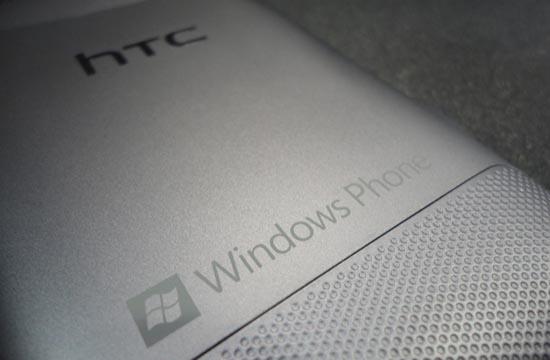
Right now, we only know a part of the story when it comes to Microsoft’s next version of Windows Phone. Earlier this year the company took the stage to talk about the next great version of the mobile operating system, but they did so with a focus on the developer and manufacturers. We got a small taste of what the general consumer can expect to see when the system launches later this year, but it was just a tease. We’re expecting to see more before the software’s official launch, but no exact dates have been given yet.
Until then, we’re left to sift through the rumors and speculation.
The rumor mill has changed gears, though. Instead of talking about features with Windows Phone 8, we get to look at the speculated hardware. While there have been plenty of leaks, nothing is quite official yet. This is the way things go, though, so it’s nothing new or surprising. Besides, taking a look at the next-generation of hardware is never a bad thing.
But there’s a pesky thing I have been noticing with each Windows Phone 8 related leak, and I can’t help but wonder if it is indeed spelling some troubling times for the future of Windows Phone and CDMA carriers. Or, to put it bluntly: repeating what’s already been done.
When Verizon and Sprint launched their own Windows Phone 7 devices, there wasn’t anyone out there heralding the devices as the best of the best. Not even close, really. Sure, Verizon’s Trophy and Sprint’s Arrive weren’t terrible, but when you compared them to devices that launched on AT&T or T-Mobile, there wasn’t much to talk about. Those GSM-based carriers got the better deal. It’s as simple as that.
It didn’t help that Verizon didn’t seem all that interested in Windows Phone back-in-the-day, and Sprint’s focus on the mobile platform seemed to wave pretty quickly, too. That could probably be connected to the whole not having comparable devices, but that’s for a different article. For now, though, let’s take a look at what we’ve seen leaked.
The first group was from HTC, a total of three devices: the Rio, Accord and Zenith. They filled a nice spectrum as far as features go, and if the devices are indeed real will probably fit into some nice price categories when they launch -- whenever that is. But the main takeaway I get from the leaked information was the HSPA and HSPA+ connectivity. A focus on GSM-based carriers.
Then there was Samsung-branded handsets, which managed to find their way online late last month. The Odyssey is built for HSPA+ 21/LTE connectivity. So is the Marco, the other Samsung device that broke cover. While there’s LTE thrown in there, there’s no doubt in my mind that these handsets are being geared towards GSM carriers.
Like I said earlier, it seems that we’re seeing a repeat of history here. Which is odd, since both Verizon and Sprint have claimed to be ready to support Windows Phone 8. More to the point, we know that Verizon is shifting focus from one platform to get ready for Windows Phone 8, so wouldn’t it make sense that Big Red (and Sprint) would want to make sure they launched a particularly high-end device?
Then again, I’m not sure what’s going on behind the scenes, so it could come down to Verizon and Sprint just not getting the pick of the litter. I can see why it would make sense for Microsoft and hardware manufacturers to focus on GSM-based carriers, especially right at the launch of Windows Phone 8, because there are just more carriers that support the network technology. Sure, there have to be different radios for carriers around the world, but that’s an easier hurdle than creating GSM- and CDMA-based variants. Especially here in the States.
I firmly believe that if Microsoft wants Windows Phone to succeed, then they need to make sure that every major carrier here in the United States has access to the best phones possible. Right out of the gate, and all the way up until the next major version of the platform launches. Even if both Verizon and Sprint launch only one Windows Phone 8 device, just make sure that it’s something that can compete with the next iPhone, or the next high-end Android device that finds its way onto store shelves.
It has to be able to compete, or Microsoft is going to lose a big opportunity. Windows Phone 8 is already looking amazing, and it should get even better with whatever new features the company is getting ready to show off later this year. They just need to make sure that a high-end device worth having finds its way onto Verizon’s and Sprint’s networks.
What say you, Dear Reader? Are you waiting to see what Verizon launches when it comes to Windows Phone 8? What are you hoping that particular device, or devices, feature, hardware wise? Are you waiting to switch from Android or iOS? Let me know!